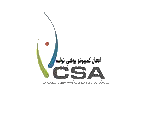|
|
|
|
|
[back] |
| Afghanistan | |||||
|
|
Afghan Computer Science Association(ACSA) | ||||
|
|
|
||||
|
Afghan Computer Science Association (ACSA) established in 1999 is a growing Information Communication Technology (ICT) professionals association that is having an outstanding experience in project initiation, project management and implementation, concept development, and institutional build-up in the ICT sector. ACSA aims to promote and develop ICT as a tool towards the development of Afghanistan and strengthening its economy. It is providing a platform for the exchange of ideas on ICT as a development tool and an enabler through organizing meetings and seminars, awareness campaigns, lobbying and advocating other ICT related programs. |
|
||||
|
The goals and objective of ACSA are to: |
|||||
|
|||||
|
|||||
|
|||||
|
|||||
|
|||||
|
|||||
|
|||||
|
ACSA is building a network of ICT professionals and entrepreneurs while building the capacity of young people to take on be leadership roles in the national ICT development strategies through effective plans and programs. It has successfully initiated numerous projects that are considered to be of significant impact in the local ICT bustle. |
|||||
|
|
|||||
|
|
Team's Achievement in the Project | ||||
|
|
|
||||
|
|||||
|
|||||
Currently ALP has two running projects. |
|||||
|
|||||
|
|||||
|
|||||
|
|||||
|
|||||
|
|||||
|
|||||
|
|||||
|
|||||
|
|||||
|
|||||
|
|||||
|
|
|||||
|
|
Goals During Second Phase | ||||
|
|
|
||||
|
|||||
|
|||||
|
|||||
|
|||||
|
|
Team Members and their Designations | ||||
|
Rafiqullah Kakar, Project Leader |
|||||
|
Habibur Rahman Najiullah, Senior Software Developer |
|||||
|
Maiwand Wardak, Software Developer |
|||||
|
Abdul Majeed, Software Developer |
|||||
|
Sharifullah Mahboob, Linguist |
|||||
|
M. Majawer Zyar, Senior Linguist |
|||||
|
Mohammad Munir Paykan, Calligrapher |
|||||
|
|
|||||
